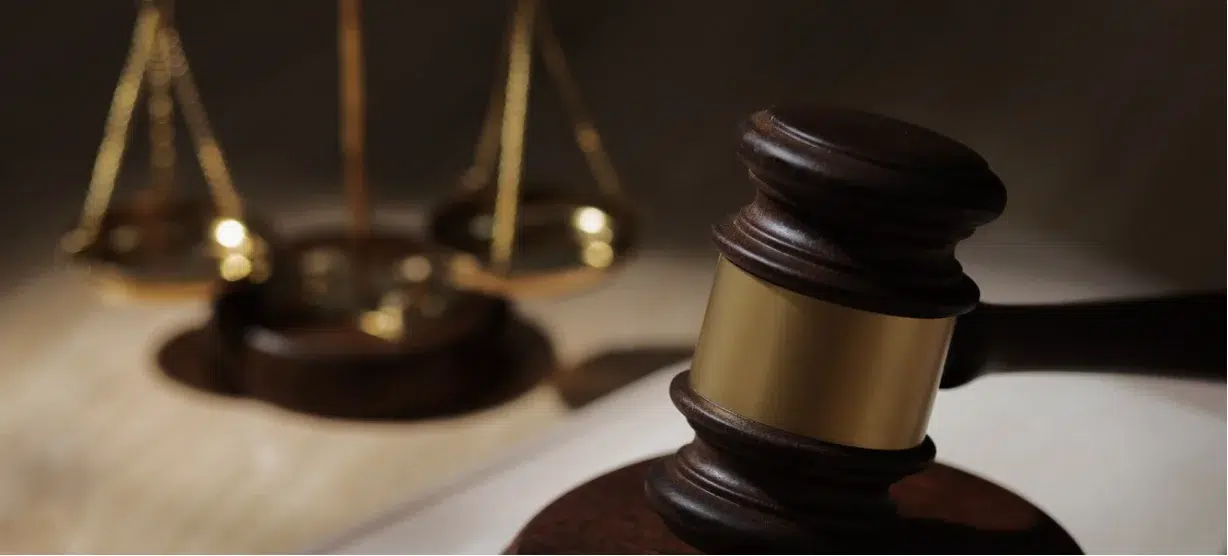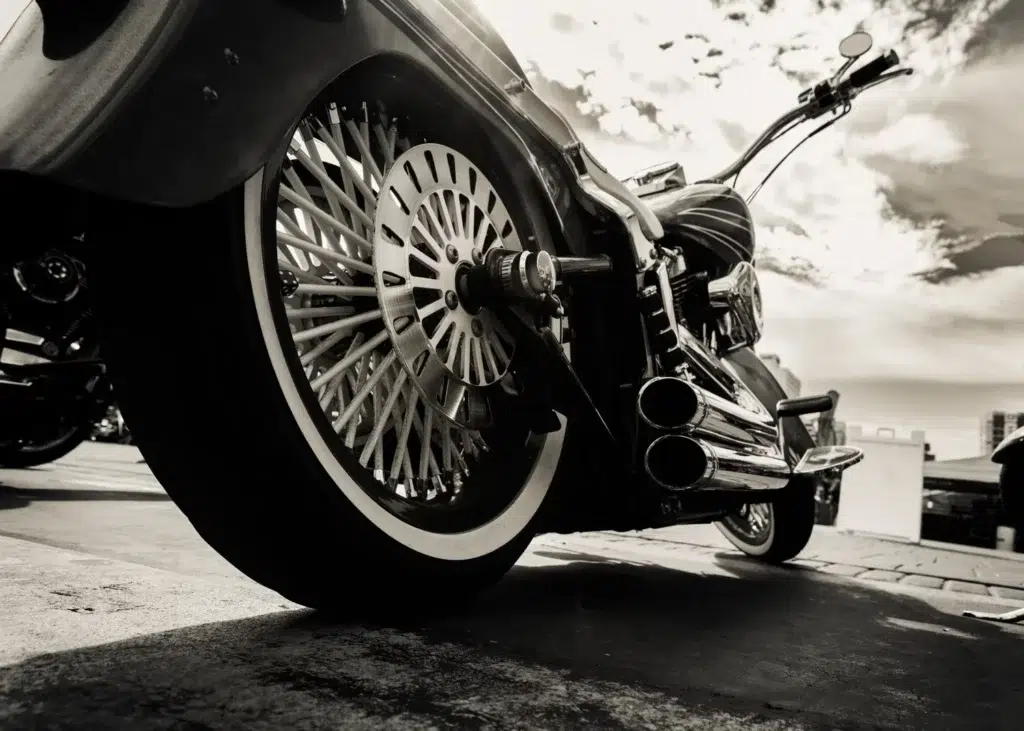



- “No win, no fee” guarantee
- No obligation consultation
- 34+ years serving Dallas/Fort Worth
- 34+ years serving Dallas/Fort Worth
- Free case evaluation
- Free case evaluation
- Direct access to your attorney
- Available 24/7
Our featured case results

Our team after a successful court hearing. Breaking the record $1.7 MILLION SETTLEMENT
Life can throw you serious curveballs sometimes. Accidents happen, people don’t always do the right thing, and personal injury cases can be more than a little daunting. Let’s face it, the court system is complex and can be pretty intimidating, especially if you don’t have much experience navigating it.
“At AMS Law Group, a commitment to client care is our primary focus. When the client is the priority, everything else falls into place.”
It’s nice to have a friend, a partner, who knows the ropes and can walk you through your case from start to finish, fighting for your rights all along the way.
At AMS Law Group, a commitment to client care is our primary focus. When the client is the priority, everything else falls into place. Serving clients throughout the Dallas/Fort Worth area, we have earned a reputation for being a trusted and reliable resource for those in need of effective legal counsel in personal injury cases and motor vehicle accidents.
The group’s team of experienced attorneys are committed to delivering personalized attention and reliable representation backed by years of experience. When you choose AMS, you are choosing a professional, dedicated legal partner that will fight to protect your interests – and we have the track record to prove it.
Our many satisfied clients have received millions of dollars in settlements thanks to the expertise and dedication of our experienced attorneys. Let us put our proven success to work for you. Isn’t it time you got the justice and compensation you deserve?
$15M
Motor vehicle accident
07.04.22
$2.3M
Truck accident
02.18.22
$6.1M
Motor vehicle accident
07.04.22
$9M
Motor vehicle accident
07.04.22
$4.3M
Truck accident
02.18.22
$5M
Motor vehicle accident
07.04.22
“At AMS Law Group, a commitment to client care is our primary focus. When the client is the priority, everything else falls into place.”
Practice areas
Personal injury cases are legal disputes that arise when a person is injured due to the negligence or wrongful conduct of another party. This can include car accidents, slip and falls, defective products, and other incidents where someone has suffered physical or emotional harm.
If this has happened to you, you may be entitled to compensation for damages, such as medical expenses, lost wages, pain and suffering, and more.
The complexity of personal injury cases in Dallas/Fort Worth often requires an experienced attorney to look out for your best interest. Whether it’s getting the medical procedures you need or combating lowball settlement offers from the insurance company, our team will fight for you and make sure that you get the best possible outcome for your case and the compensation you deserve. Working with an experienced attorney who is well-versed in Texas laws and procedures is the key to achieving this, and that’s what you get when you choose AMS Law Group.
34
Years of combined experience
700+
Cases
90%+
Won cases
Premises Liability
Premises liability holds property owners or occupants responsible for injuries that occur on their property due to their negligence.
In Texas, property owners and people occupying a property have a duty to maintain safe conditions on their premises.
Property owners and occupants must also warn visitors of any known hazards. If they fail to do so and someone is injured, they may be held liable for the damages.
Some of the more common premises liability cases are centered on slip and fall accidents, dog bites, swimming pool accidents, stair collapse, amusement park accidents, falling objects, and elevator/escalator accidents. However, there are many other situations that could qualify as a premises liability lawsuit.
If you have been injured on someone else’s property, it is important to seek legal services from an experienced attorney who can investigate the circumstances of your accident, determine liability, and pursue compensation for your loss or damages.
“In Texas, property owners and people occupying a property have a duty to maintain safe conditions on their premises.”
Catastrophic Injury
Catastrophic injuries are severe and life-altering injuries that have long-term and, sometimes, permanent effects on a person’s physical, emotional, and financial well-being.
If you or a loved one have suffered a catastrophic injury in Texas, it is crucial to seek legal services from a qualified attorney specializing in catastrophic injury cases.
Our legal team can provide you with legal advice, guide you through the complicated legal process, and help you pursue compensation for medical expenses, lost wages, and other damages, including pain and suffering.
When you choose AMS Law Group, we will be available to you to answer your questions, discuss the status of your case, represent you in court, and negotiate with insurance companies to ensure that you receive the maximum compensation possible for your injury. Hiring legal representation for your catastrophic injury case can help you and your family recover and move forward after a devastating injury.
“If you or a loved one have suffered a catastrophic injury in Texas, it is crucial to seek legal services from a qualified attorney specializing in catastrophic injury cases.”
Wrongful Death
Losing a loved one due to someone else’s negligence or intentional act is an incredibly painful and difficult experience. If you have lost someone you love due to wrongful death in Texas, you may be feeling overwhelmed and not sure how to proceed. You need a qualified attorney who specializes in wrongful death cases.
When you trust us with your wrongful death case, you get legal advice that comes from years of experience, guidance as you navigate this difficult time, and compassionate support you can count on.
We will investigate the circumstances of your loved one’s death, determine liability, and pursue compensation for funeral expenses, lost income, and pain and suffering.
We will also negotiate with the insurance companies and other parties to ensure that you receive the maximum compensation possible for your loss. We will help you and your family get justice and closure after your devastating loss.
“We will investigate the circumstances of your loved one’s death, determine liability, and pursue compensation for funeral expenses, lost income, and pain and suffering.”
Under Texas law, the victim of motor vehicle injury may be entitled to compensation for medical expenses, lost wages, pain and suffering, and other damages. If you have sustained physical harm, damage, or loss resulting from an accident involving a motor vehicle, talk to us first.
Injuries from motor vehicle accidents don’t always show up immediately. You can feel the effects days or even weeks after the crash. This can range from minor cuts and bruises to severe, life-threatening injuries or death.
The majority of motor vehicle injury cases involve a legal claim against the party responsible for causing the accident, which can be the driver, vehicle manufacturer, or government entity responsible for maintaining roads and highways. Sometimes there may be more than one defendant.
If you have been injured in a motor vehicle accident, you need an experienced motor vehicle injury attorney to help you understand the legal process, gather evidence, negotiate with insurance companies and other parties, and pursue a legal claim to obtain fair compensation.
34
Years of combined experience
700+
Cases
90%+
Won cases
Pedestrian Injury
A pedestrian hit by a car, truck, or other motor vehicle can result in serious injuries. If you have been hurt in a pedestrian accident, we can help you seek compensation for your injuries and other losses you may have incurred because of the accident. We will conduct an investigation, gather evidence, and negotiate with insurance companies on your behalf so you can focus on the important thing, your recovery.
Motorcycle Accidents
There are many causes of Motorcycle accidents; road and weather hazards, driver error, and equipment failure, to name a few. Because motorcyclists lack the protection occupants of other types of vehicles have, motorcycle accidents can often result in serious injuries or even fatalities.
The most common legal cases involving motorcycle accidents are claims against the party responsible for causing the accident.
Depending on the circumstances, this may include the other driver, a manufacturer of faulty motorcycle equipment, or even a government entity responsible for maintaining safe roads and highways.
If you have been involved in a motorcycle accident, it is essential to seek the advice of an experienced attorney who can help you navigate the legal process, gather evidence, and pursue legal action to obtain fair compensation for your losses.
“The most common legal cases involving motorcycle accidents are claims against the party responsible for causing the accident.”
Drunk Driving Collisions
In Texas, driving under the influence (DUI) is a serious offense and can result in severe legal consequences, including license suspension, large fines, and even jail time.
If you are involved in a drunk driving collision, don’t try to navigate the legal system on your own. You need to get legal representation right away.
DUI collisions can be very complex, especially if there is property damage or if someone was injured or killed.
A lawyer who is experienced in DUI cases can help you navigate the legal process, gather evidence, and build a defense strategy to help you achieve the best possible outcome for your case.
The legal team at AMS Law Group will work with you to get the best resolution for your case. We will represent you in court for criminal as well as civil matters related to the accident and negotiate on your behalf with the prosecutor to mitigate any potential penalties. Ultimately, seeking legal services can help you protect your rights and minimize the impact that a DUI conviction can have on your life.
“DUI collisions can be very complex, especially if there is property damage or if someone was injured or killed.”
Uninsured Driver Accident
When a driver who does not have insurance coverage causes a motor vehicle accident, it can be challenging to recover compensation. In most states, including Texas, drivers are required by law to carry minimum amounts of liability insurance coverage in case they cause an accident. This insurance coverage typically pays for damages and injuries caused to other drivers or passengers in an accident.
If an uninsured driver causes an accident, there may not be insurance coverage available to pay for the damages and injuries caused by the accident. It is crucial to seek the advice of an attorney experienced in Texas law who can help you understand your legal rights and options.
18-Wheeler Truck Accidents
There are more than 4 million 18-wheeler trucks operating in the United States, and Texas is home to around 200,000 of them. While these trucks are essential in getting our food and other goods to stores where you can have access to them, they are still operated by humans and still subject to human error.
There are many reasons why an 18-wheeler accident may occur: driver error, equipment failure, inadequate maintenance, and hazardous road conditions. The massive size and weight of these trucks increase the risks of catastrophic injuries or even fatalities, not to mention property damage.
If you are involved in an 18-wheeler truck accident, you may face complex legal issues, as there may be multiple parties involved, including the trucking company and potentially even the truck manufacturer.
Often there are multiple insurance policies at play, which can make it challenging to determine liability and recover fair compensation.
It is critical to seek the advice of an experienced attorney who can investigate the accident and pursue legal action to ensure you get the compensation you are owed.
“Often there are multiple insurance policies at play, which can make it challenging to determine liability and recover fair compensation.”

Reasons to file a car accident claim
An accident can happen in a moment, and in that brief span of time, your life can be drastically changed. Sometimes, it is changed forever.
If you have been involved in a car accident in Dallas, Fort Worth, you have likely sustained some damages and even loss. An injury means expenses for medical treatment, and if you can’t go to work because of it, there are also lost wages. You may also be dealing with property damage.
If the accident was caused by someone else’s negligence or wrongdoing, you may be entitled to compensation for these damages and losses as well as pain and suffering. Filing a car accident claim can help you cover the costs associated with your recovery as well as hold the responsible party accountable for their actions, preventing similar accidents from happening in the future.
“Filing a car accident claim can help you cover the costs associated with your recovery as well as hold the responsible party accountable for their actions, preventing similar accidents from happening in the future.”
An experienced, knowledgeable Texas car accident attorney can help you begin that process and see you through it from beginning to end. At AMS Law Group, our legal team is ready to help you get the compensation you deserve so your road to recovery is just a little smoother. Call today to get started.
“Filing a car accident claim can help you cover the costs associated with your recovery as well as hold the responsible party accountable for their actions, preventing similar accidents from happening in the future.”
Dallas/Fort Worth testimonials
“...They gave me
the confidence that my case will get approved.”
“...AMS made sure kept me inform with my case by emails, phone calls, text messages with finalizing my case which I was very pleased with.”
“...helped me through the legal process(es) behind my vehicle accidents in detail. The law firm exceeded my expectations. Thanks AMS!”
“...AMS is a true blessing and if it wasn’t, I would have been lost.”
“...whether I call at 7am or midnight they always answer the phone ready to help in anyway possible!”
“...AMS Law Group went above and beyond to help me after my car accident. They were there for me every step of the way, always answering my questions and giving me peace of mind.”
“...It was a battle for sure but they fought tooth and nail to get me the compensation I deserved.”
“...To conclude, I won my case and got a compensation I never thought would be possible.”
“...They took care of everything so I could focus on getting better.”
“...within a few months, I received a fair settlement. I am so grateful for their hard work and dedication.”
4.8
228 reviews via Google
Why hire AMS law firm to help with your Fort Worth accident or serious injury?
Experience
Our attorneys have worked on hundreds of personal injury and motor vehicle accident cases in the courtroom as well as at the negotiation table. We have experience where it counts, and we’ll use it to benefit you in your own case.
Personal Attention
All cases have similarities, but there’s only one like yours. Your case is important to us because it’s important to you. Our personalized approach means that you will be treated like a person, not just another case number.
Results
Our promise to you is that we have the talent and knowledge to successfully handle your case, but at the end of the day, results are what count. We’ll get you them without sacrificing discretion and professionalism.
“Our commitment to fighting for your rights and securing the compensation you deserve is what sets us apart from other law firms.”
At AMS Law Group, we understand that your case is unique, and we are dedicated to providing personalized, compassionate, and aggressive representation. The impact that a personal injury or motor vehicle accident can have on your life and the lives of your loved ones can be catastrophic. Our commitment to fighting for your rights and securing the compensation you deserve is what sets us apart from other law firms.
“Our commitment to fighting for your rights and securing the compensation you deserve is what we believe sets us apart from other law firms.”
That compassion and caring mean a lot when you are going through the trauma of injury or loss that someone else has inflicted on you because of their negligence or wrongdoing. So does our dogged determination to get our clients the most compensation and highest settlements possible for their suffering and loss.
Our team of experienced attorneys has a track record of successfully handling a wide range of personal injury cases and motor vehicle accidents. When you choose us, you can trust that we will work tirelessly to help you get the best possible outcome for your case. It’s your life; you deserve to be able to live it to the fullest.

A legal team with inside knowledge of insurance companies
AMS Law has more than 15 years of experience handling insurance claims, working with insurance companies, and negotiating settlements. We have a comprehensive understanding of how insurance companies operate and the strategies and tactics they often use to minimize or deny claims.
“We have a comprehensive understanding of how insurance companies operate and the strategies and tactics they often use to minimize or deny claims.”
We put our experience and knowledge to work for you in a number of ways:
- Negotiating with Insurance Companies: A fair settlement is the goal of any personal injury or motor vehicle accident case, but insurance companies are typically not forthcoming with a settlement offer that fairly compensates the victim. It takes years of experience and dogged determination to successfully negotiate with insurance companies and get a fair settlement. Our years of experience in gathering and presenting evidence in a way that is most persuasive to insurance adjusters is just one of the many benefits you’ll get when you choose AMS Law Group.
- Avoid Common Tactics Used by Insurance Companies: Insurance companies are famous for lowballing settlement offers and often use a variety of tactics to avoid paying claims or minimize the amount they pay to the victim. This can mean delays in medical payments and other vital expenses. After an accident, you don’t need the added stress of mounting bills while the insurance company essentially plays with your life. We are very familiar with the tactics insurance companies use and can help you anticipate them so that you are better equipped to respond to them more effectively to get the compensation you need and deserve.
- Guide You Through Documentation: Insurance claims require thorough documentation in the claims process. Even one small error can delay your settlement or cause your claim to be denied. We can help you gather and organize the evidence necessary to support your claim and avoid common mistakes that could seriously undermine your case.
The choice is clear. AMS Law Group gets results. Let us put our knowledgeable, experienced attorneys to work for you.
“We have a comprehensive understanding of how insurance companies operate and the strategies and tactics they often use to minimize or deny claims.”
Why isn’t the insurance company helping me?
“It’s important to remember that, first and foremost, an insurance company is a business.”
“If you have been in an accident, it is important to contact an attorney as soon as possible to help you understand your options.”
Insurance companies want you to believe that they are there to protect you, help you, and make YOU their priority. That isn’t always the case, though.
It’s important to remember that, first and foremost, an insurance company is a business. Like all businesses, its primary goal is to protect its own interest and make a profit. This means that when it comes to your claim, sometimes their bottom line could take precedence over your best interests.
Many insurance companies have a standard practice of denying valid claims or offering lowball settlements. They may resort to tactics such as delaying claims processes or disputing liability. This is extremely common in the insurance industry, and many people never get the settlements they should because they don’t have aggressive legal representation that will stand up to these companies and push back.
“If you have been in an accident, it is important to contact an attorney as soon as possible to help you understand your options.”
There are many ways an insurance company can attempt to avoid paying out claims. That’s why it is imperative to have a skilled attorney on your side who will help you hold your insurance company accountable for its obligations.
Even the most reputable insurance companies can have policies that are difficult to understand. There can be many valid reasons why they aren’t paying out your claims, such as coverage limitations or policy exclusions. There may be limitations, such as your policy not covering accidents that involve certain vehicles, such as a motorcycle or commercial truck, or it can exclude certain situations, like getting in an accident while under the influence of drugs or alcohol.
Procedural issues can also cause delays or denials. These can include failure to report the accident within the required timeframe, out-of-state accidents, or the person driving your vehicle during the accident being excluded from your policy.
Even in the best cases, insurance can be complicated. If you have been in an accident, it is important to contact an attorney as soon as possible to help you understand your options. At AMS Law Group, we’re here for you. Call today and get the help you need.
Our experienced attorneys in Dallas
How our law firm can help you
Why choose AMS Law Group over other firms? The choice is clear.
1. Level the playing field
As seasoned attorneys, we have access to legal resources and expertise that you are unlikely to have on your own. We can investigate your case, gather evidence, and consult with experts to build a strong case and establish liability. We will negotiate with insurance companies and other parties on your behalf to seek a fair settlement and provide skilled courtroom advocacy if your case goes to trial.
2. Ensure your case is valued properly
We will thoroughly investigate and assess the full extent of your injuries and damages, and we have the resources to consult with experts and specialists to determine the long-term impact of your injuries. We continuously analyze past verdicts and settlements to help determine reasonable compensation, which will help us successfully negotiate with insurance companies and other parties. Plus, we have the expertise necessary and are prepared to present your case in court so you can pursue maximum compensation.
“We continuously analyze past verdicts and settlements to help determine reasonable compensation, which will help us successfully negotiate with insurance companies and other parties.”
3. Identify responsible parties
A large part of our thorough investigation into your case includes gathering evidence and interviewing witnesses. This helps to ensure we identify the responsible parties and then hold them accountable for their actions.
4. Limit liability if you share fault
If you share fault in your personal injury case, we will work hard to limit your liability by conducting a thorough investigation to show how the other party’s negligence or wrongful actions played a larger role in causing the accident. Our experienced attorneys will also negotiate with the other party’s insurance company and legal team to seek a fair and just settlement that reflects the shared fault in the case.
“We continuously analyze past verdicts and settlements to help determine reasonable compensation, which will help us successfully negotiate with insurance companies and other parties.”
“Do not let your legal problem overwhelm you. Contact us by phone or email to schedule a free no-obligation consultation.”
Founder & Partner

Areas we serve
Main office
- (888) 960-8363
-
811 South Central Expressway, Suite 600 Richardson,
TX 75080, United States - 811 South Central Expressway, Suite 600 Richardson, TX 75080, United States
Regional offices
AMS Law serves clients throughout the Dallas/Fort Worth area. We pride ourselves on being a reliable resource for trusted, effective legal counsel in personal injury cases and motor vehicle accidents.
Contact us for a free consultation
Our legal team is always ready to provide the support you need, with round-the-clock availability and our ability to cater to diverse clients. Our team is fluent in English, Spanish, and Arabic.
Frequently Asked Questions
What should I do if I am in a car accident?
Immediately check yourself and others involved for injuries. If anyone is seriously hurt, call 911.
If possible, move your vehicle off the road and park somewhere safe to wait for the police and emergency personnel. Turn on your hazard lights.
When talking to the other party as well as law enforcement, do not admit fault or apologize for the accident. In fact, the less you say, the better. Even a simple apology at the scene can be used to show your admission of guilt for causing the accident. It is best to not say anything, especially if you think you might be at fault.
Even if the accident is minor, you should still call the police. Exchange contact and insurance information with the other driver(s) involved and take photos of the scene to show damage – or lack of damage to vehicles and property.
Thoroughly document the scene by taking photos and videos of the accident, including any injuries or damage to your vehicle. Seek medical attention, even if you don’t feel like it’s necessary. Some injuries may not be immediately apparent.
Finally, contact AMS Law Group to help protect yourself and ensure you receive fair compensation for your injuries and damages.
Should I Call the Police if I am in a car accident?
Yes, if you’re involved in a car accident, it’s important to call the police, even if it’s just a minor accident. Under Texas law, you’re legally required to report an accident to the police if it results in injury, death, or property damage over $1,000.
Calling the police ensures that emergency medical services are dispatched as quickly as possible if anyone is injured.
It also means that there is official documentation of the accident.
The police will also create a report of the accident, which can be used as evidence in your personal injury claim. This report will include important information such as the accident’s date, time, and location, a description of the vehicles involved, the names and contact information of the drivers and witnesses, and a preliminary determination of who was at fault. This report can help expedite your insurance claims process.
Should I Speak to the Other Driver's Insurance Company About the Accident?
No, do not speak with the other drivers’ insurance company without first consulting an attorney.
Insurance adjusters will attempt to settle for as little as possible and often use tactics that minimize payouts, including downplaying injuries and asking leading questions. They can trick you into admitting guilt that you are wholly or partially responsible for the accident.
Anything you say can be used against you. What’s more, you may not know the full extent of your injuries because they can take days or even weeks to show. AMS Law can help you navigate the claims process, protect your rights, and ensure you receive fair compensation.
Why Do I Need a Lawyer?
If you’ve been injured in an accident, hiring a personal injury lawyer is a wise move. Personal injury attorneys have experience, knowledge, and resources you are unlikely to have.
If your case goes to trial, a personal injury lawyer can represent you and help you get the best outcome possible. You will need help identifying liable parties and negotiating with insurance companies for fair compensation. Hiring a lawyer can also give you peace of mind by allowing you to focus on your recovery.
How Long After a Car Accident Should I Contact an Attorney?
If you’ve been in a car accident, it’s best to contact a personal injury attorney as soon as possible. If you delay, you could miss the statute of limitations for filing a lawsuit, and essential evidence could disappear. Even if you aren’t sure whether you have a case or not, an attorney can offer valuable guidance.
What Is a Personal Injury Case?
Personal injury cases are legal disputes that arise when someone is injured due to the actions of another party, which can be an individual, business, or other entity.
Personal injury cases can be resolved through a settlement or lawsuit. Sometimes the compensation can be negotiated without going to court, but sometimes the case does go to trial. The goal of a personal injury case is to obtain fair compensation for the injured party and hold the responsible party accountable. If you are injured, AMS Law Group can help you navigate the legal system and ensure you receive fair compensation.
Will my case go to court?
Your personal injury case could go to court, but it’s not guaranteed. In fact, most personal injury cases don’t go to trial. They are settled out of court through negotiations between the parties involved.
The likelihood that your case will go to court depends on several things, including the nature and severity of your injuries, the amount of compensation being sought, the strength of the evidence, and the willingness of both parties to settle.
If your case does go to court, you will need an experienced attorney to represent you before a judge or jury and present evidence to support your claim for damages.
How much will you charge me for handling my case?
If you don’t get paid, we don’t get paid. It’s that simple.
When you choose AMS Law Group, you get personal attention and caring, compassionate, professional representation by attorneys who have the knowledge, talent, and experience to ensure you get the best possible outcome for your case.
Not only will we give you a FREE personal injury case evaluation… we don’t charge you a cent until your case is settled.
While you recover from your injuries, we fight for you to receive all the compensation you are legally entitled to, including:
- Payment for your medical bills, both current and those you might incur in the future
- Lost wages
- Lost earnings if you are unable to return to work
- Rehabilitation of all types
- Job retraining if you are unable to return to your former employment
- Pain and suffering
You focus on putting your life back together, and we’ll focus on making sure you have what it takes to do it.
How long will my case take?
The time it takes to resolve a personal injury case varies depending on its complexity, how severe the injuries are, and whether the parties are willing to settle outside of court.
Some cases can be resolved quickly if the injuries are minor and both sides agree to a settlement.
However, some cases take a bit longer. This is especially true of those that are more complex, such as cases involving more serious injuries. Those cases can take longer due to extensive negotiations, mediation, or even a trial.
It’s hard to predict how long it will take, but a consultation with AMS Law Group can give you some insight into the complexity of your own case, and it can be resolved efficiently.
Do You Handle Wrongful Death Cases?
Yes, AMS Law handles wrongful death cases and can provide legal advice, guidance, and support to help you and your family achieve justice and closure after a devastating loss.
Dallas/Fort Worth Injury Resources
Dallas/Fort Worth Injury Articles
February 14, 2024
Car accidents can leave you with a lot to deal with. There are car repairs, medical bills, lost wages from injuries, and so much more.
September 13, 2023
The State of Texas ranks number 8 in the nation for motorcycle registrations. Out of more than 380,000 registered motorcycles, there were almost 7500 motorcycle accidents and 562 fatalities in 2022.
September 13, 2023
If you've been injured in a truck accident in Houston, Texas, you need an experienced Houston truck accident attorney to help you recover compensation for your injuries.
September 13, 2023
If you've been in a bicycle accident in the Houston, Texas, area, you need a Houston bicycle accident lawyer to help you recover compensation for your injuries.









